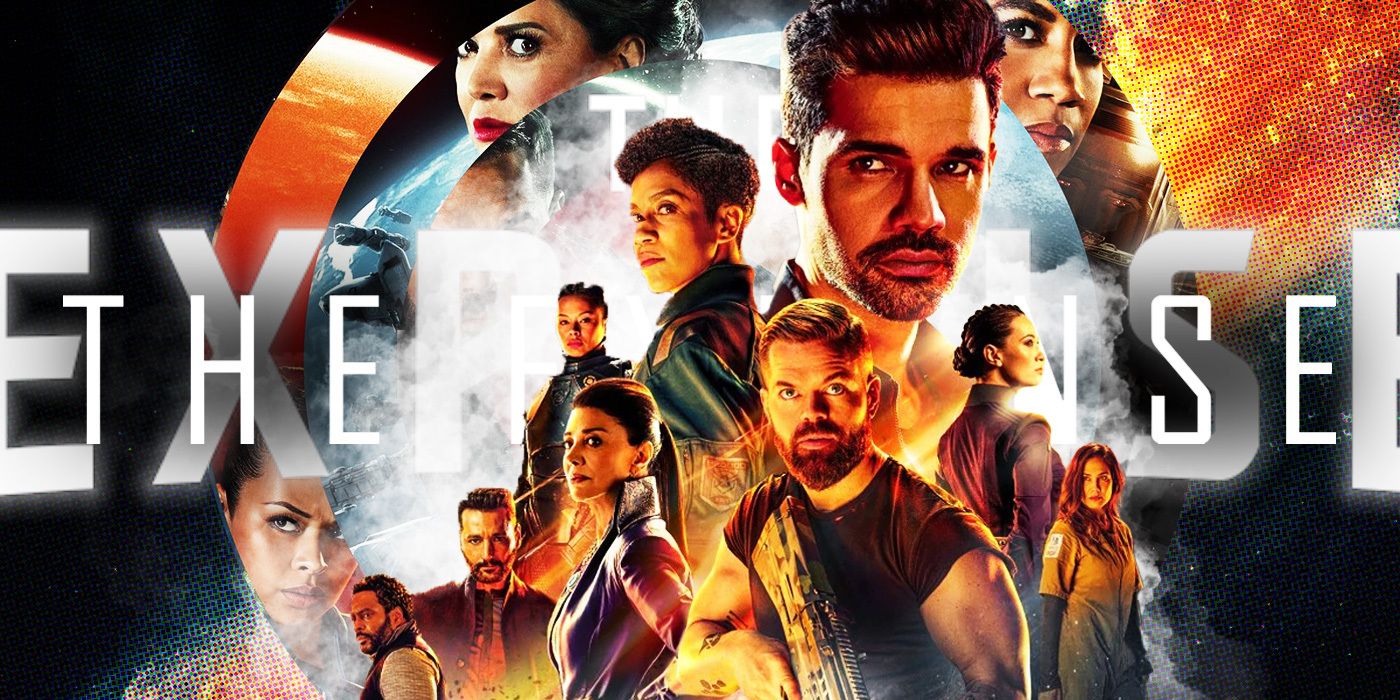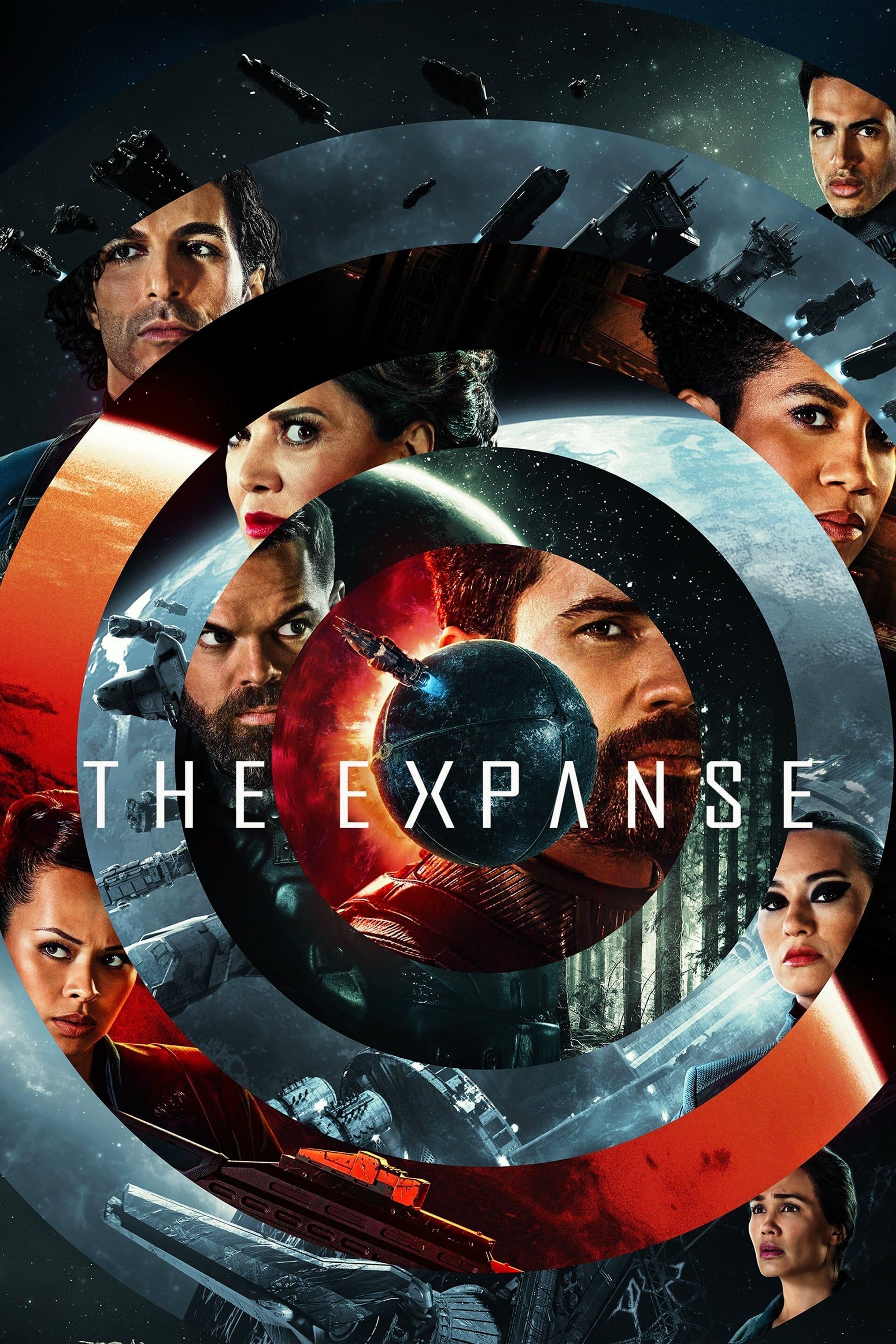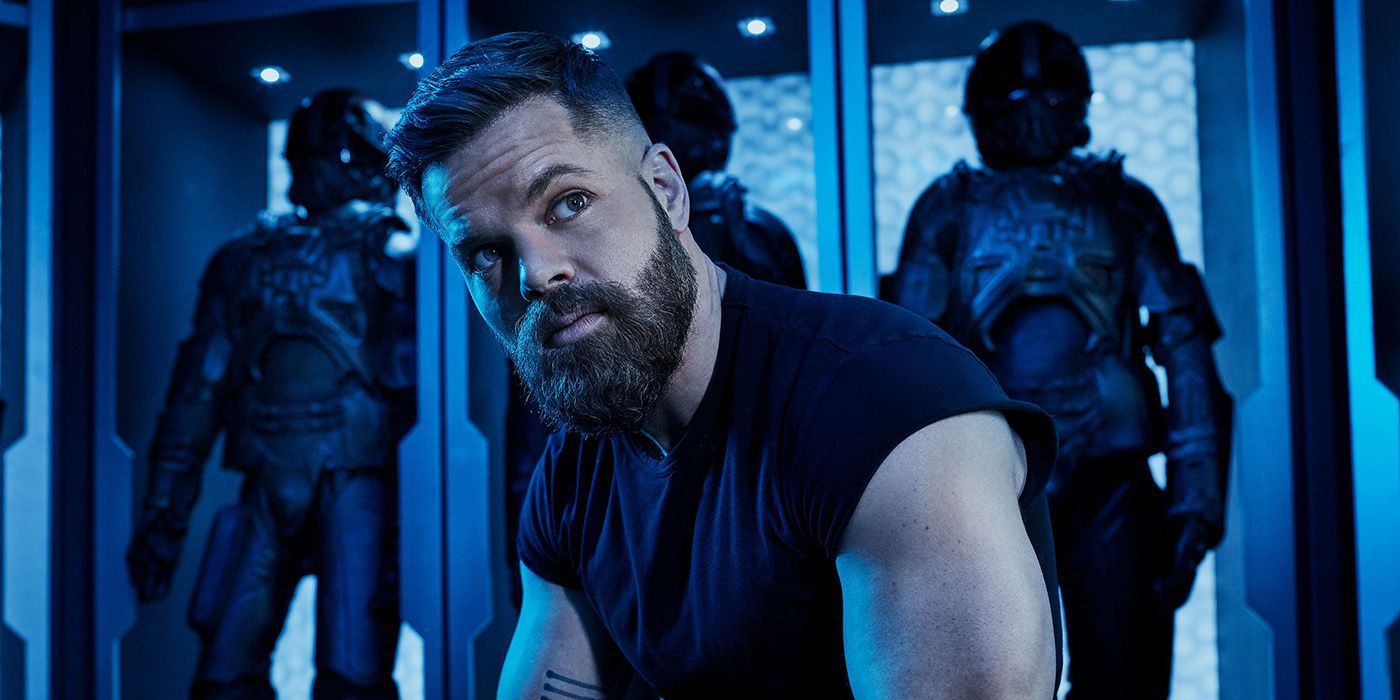The outer space sci-fi genre has been dominated by juggernauts like Battlestar Galactica or Star Wars, casting such dense shadows that some of the shiniest of hidden gems struggle to become mainstream. One of which is The Expanse, a masterpiece of a sci-fi show that found its niche but still isn’t talked about enough. Despite its genre, the six-season series actually has more fundamentals in common with Game of Thrones than its peers, becoming the interstellar equivalent of the politically dense and morally intimate fantasy series. This shouldn’t really be a surprise since the show is based on the book series of the same name by James S. A. Corey, a collective nom-de-plume for writers Daniel Abraham and Ty Franck, where the latter was a former assistant to George R.R. Martin. Even as the show expands into the zero-G other-worldliness of outer space, it is grounded in nuanced political tensions and character studies any fan of Game of Thrones will adore.
What Is ‘The Expanse’ About?
The Expanse is set in a futuristic, dystopian universe where the resources on Earth have been depleted and humanity has expanded to other planets in the solar system. We are tossed into cold war tensions between the people of the Earth, Mars, and the (Asteroid) Belt, which eventually escalate into an all-out war. Like Game of Thrones, the beginning of the series explores separate parallel storylines, delving into the lives and natures of different characters until they all intertwine in various, usually cataclysmic ways.
The premiere introduces us to three major arcs. One follows a detective (Thomas Jane) who is conducting an investigation on Ceres, a space station in the Belt, into the disappearance of a wealthy Earth-resident’s daughter. Meanwhile, an ice trawler called Canterbury is attacked, and the crew, led by James Holden (Steven Strait), would later steal a ship, rename it Rocinante, and become somewhat the protagonists of the show as we navigate the complex galactic ecosystem through their journey. On top of this, we also see scenes back on Earth, which is ruled by a powerful group called the UN, where an administrator is interrogating a terrorist about the events on Mars and Ceres. As the series unfolds, so do conspiracies, bioterrorism, rebellions, and new discoveries, including an alien protomolecule that becomes a major catalyst in many of the show’s turns.
‘The Expanse’ Delivers the Political Tension of an Interstellar ‘Game of Thrones’
Like how Game of Thrones indulges in mythical elements of high fantasy, The Expanse immerses us in the stunning techno visuals of neon light strips on command controls and the vast void of a galactic background. But both shows use their fictitious elements to discuss familiar human strife, ranging from personal conflicts to societal uprisings, each deeply relevant and sharp. The Expanse has been dubbed the spiritual successor to Battlestar Galactica, but where the latter eventually lost its strong political commentary to pseudo-religious ideas and melodramatic ambiguity, The Expanse maintained its political tenacity and attention to character conflicts. In this way, it shares the same essence as Game of Thrones rather than its sci-fi predecessor.
Ceres is the main location of socio-political unrest, where the divide between the “belters”, the working class who have spent generations mining the Belt in inhabitable, zero-G conditions, and the “inners”, the representation of the elite class who reside comfortably on Earth and Mars, benefiting off of the belter’s work while treating them poorly. On the cusp of an explosive rebellion, The Expanse confidently interrogates these class divides and power imbalances, the ethics of belter terrorists and their torture, and the ever-present conflict over resource distribution, where ice and water replace gold and diamonds. The show jets off into outer space burdened by ageless human preoccupations and is better for it, just like an interstellar Game of Thrones.
But also, like its fantasy counterpart, The Expanse creates this lived-in political ecosystem through individual stories, where characters are dynamic and never wholly swing to one side of the good-evil pendulum. Strait’s performance as the Rocinante crew’s leader, James Holden, embodies this notion, as he could easily slip into the role of an arbitrary world-hero, yet adopts the manner of not quite being able to grapple with the weight of the conflict. Instead of purposefully striding to the ethically correct decision, he questions, ponders, and perseveres to do what little good he can, often settling for hope for coexistence rather than triumph. He is joined by three central crew members: Amos Burton (Wes Chatham), Alex Kamal (Cas Anvar), and Naomi Nagata (Dominique Tipper), who are also layered with elements of darkness and hesitation, where each character contributes to the world’s realistic and utterly human feel.

Related
‘The Expanse’ Gets First-Ever Action Figure Collection From Nacelle on Kickstarter
The project was launched by the Nacelle Company and Alcon Entertainment.
Intergalactic Battles Feel High-Stakes and Immersive in ‘The Expanse’
Realism doesn’t just stop at the socio-political environment, made up of wider conflicts and individual characters, of The Expanse, and ranges out to the intergalactic atmosphere of the show. The futuristic technology may be dazzling, but like how Game of Thrones doesn’t shy away from the dark underbelly of fantasy, The Expanse isn’t afraid to deliver a brutal depiction of space. Flying across the solar system doesn’t consist of casually sitting on the ship and watching the stars go by through the windows; it’s a teeth-gnashing, white-knuckled experience as the characters feel genuine impending danger with each thrust. It allows for a more dramatic and intense mode of storytelling, one that exacerbates the constant political pressure that is always lingering around the corner.
But it is most prominent in action sequences. The battles between spaceships aren’t as glorified as the Space Invader-esque shooting in Star Wars, where deflector shields protect inhabitants from enemy ships. No, in the shieldless The Expanse, if you’re shot with your magnetic boots on, your bleeding corpse is left hanging like a static hair, morbidly amusing yet so awfully insignificant. Like how the land is constantly holding dangers in Game of Thrones, from the winter snows to the arid deserts, space is not merely a background in The Expanse: it is a volatile, perilous entity that serves to add pressure to the political conflicts, where each battle must be carefully picked and resources are always a concern. So, while sci-fi fans will undoubtedly fall in love with this gripping show, Game of Thrones fans may also find unexpected satisfaction in this intergalactic political and character-driven adventure.


